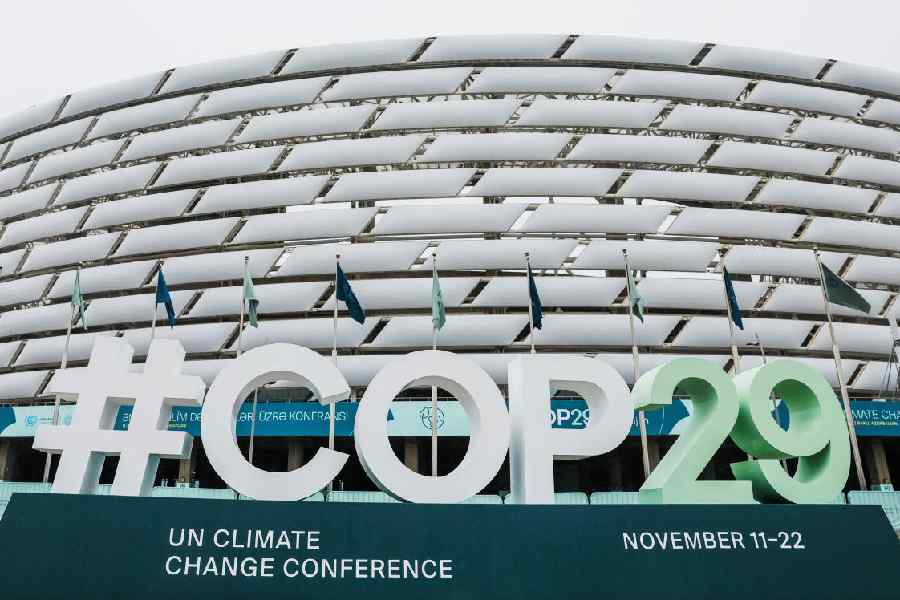India on Friday said unilateral trade measures in the name of climate action are "discriminatory, harm multilateral cooperation" and go against the principles of the UN climate change convention.
Making an intervention in the presidential consultations on 'unilateral measures' at COP29 in Baku, India said this is a matter of global concern that needs urgent consideration to ensure the development pathways of developing countries are not constricted.
Other groups of developing countries, including the G77, the largest bloc representing over 130 nations at the UN climate talks, and Like-Minded Developing Countries also registered their strong opposition on the issue.
However, developed countries, particularly the European Union, argued that the United Nations Framework Convention on Climate Change (UNFCCC) is not the right platform to discuss this issue, as it is already being addressed by the World Trade Organization.
India said restrictive unilateral measures force developing and low-income nations to bear the costs of transitioning to low-carbon economies, undermining climate finance commitments from developed nations, which have historically benefitted from industrialisation and contributed the most to greenhouse gas emissions.
"They effectively will result in the reversal of climate finance mobilised by the developed countries. It is like asking the victim to pay for the remedy," it said.
"Any unilateral measures in the name of climate change responses are discriminatory towards developing countries and detrimental to multilateral cooperation. They violate principles of equity and CBDR-RC and the UNFCCC provisions," it said.
India further said unilateral trade measures discriminate against countries seeking to industrialise through export-led growth by raising the cost of exports.
If the goal is to reduce global carbon emissions, climate policies must focus on offering concessional finance and building the capacity of countries to address both mitigation and adaptation, it said.
Trade measures related to climate change need to be assessed for their potential impact on equitable and just transitions, in the context of sustainable development and efforts to eradicate poverty, the country said.
Any trade-related climate policy should consider its effect on equitable and just transitions, sustainable development, and poverty eradication, it added.
The COP29 opening plenary was significantly delayed on Monday as developed and developing countries debated whether to make "unilateral trade measures", such as the European Union's Carbon Border Adjustment Mechanism (CBAM), an agenda item.
China, on behalf of the BASIC group of countries, submitted a proposal to the UN climate body last month requesting that this year's COP address the issue of unilateral trade measures.
The CBAM is the EU's proposed tax on energy-intensive products, such as iron, steel, cement, fertilisers, and aluminium, imported from countries like India and China.
The tax is based on carbon emissions generated during the production of these goods. Both the United Kingdom and the United States are at different stages of imposing their versions of this mechanism in due course.
The EU has earlier argued that this mechanism creates a level playing field for domestically manufactured goods, which must adhere to stricter environmental standards, and help curb emissions from imports.
Finance Minister Nirmala Sitharaman last month termed CBAM "unilateral and arbitrary" and said such measures could potentially harm India's industries and disrupt the balance in international trade.
According to the Delhi-based think tank Centre for Science and Environment (CSE), CBAM will impose an additional 25 per cent tax on carbon-intensive goods exported from India to the EU.
This tax burden would represent 0.05 per cent of India's GDP.
Except for the headline, this story has not been edited by The Telegraph Online staff and has been published from a syndicated feed.











